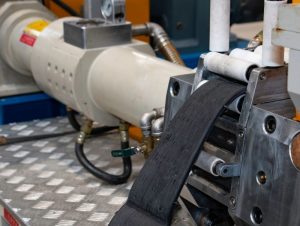How to Become a Rubber Technologist
Are you completing high school and aspiring to become a rubber technologist? You might be wondering about the best course to study, what school to attend, how to prepare for the GRE or other college entrance exams, and other requirements apart from your high school grade. It does not take long to become a professional rubber technologist, but before we discuss how you will become one, let’s first define a rubber technologist.
The Job as a Rubber Technologist
Rubber technologists are engineers that deal with the manufacturing of rubber. They also develop valuable rubber-made commodities that we use in our daily life. They include motor vehicle and bicycle tires, rubber shoes, bands, and other latex substances. The rubber can either be natural, latex, or artificial.
As a rubber engineer, you identify, describe, and state elements of the different rubber forms.
What Should I Study to Be a Rubber Technologist?
In most countries, you require either a college certificate or a bachelor’s degree in rubber engineering to start your career in this field and be recognized. Candidates with other related courses as undergrad degrees can specialize in rubber engineering in post-graduate programs.
What Are University Entry Requirements to Study Rubber Technology?
 One, you should have completed your A level or high school final exam with majors in mathematics and sciences (specifically chemistry and physics). Those who do not qualify for bachelor’s degrees direct from high school can pursue post-secondary education like a diploma or associate degree first.
One, you should have completed your A level or high school final exam with majors in mathematics and sciences (specifically chemistry and physics). Those who do not qualify for bachelor’s degrees direct from high school can pursue post-secondary education like a diploma or associate degree first.
GRE Entry Exam for Rubber Technology High Education Candidates
Students, especially those pursuing post-graduate education, must sit for admission exams. In some countries, you must sit for the GATE, the Graduate Aptitude Test in Engineering; in others, you may sit for the GRE.
Degree in Rubber Technology
An undergraduate degree in rubber technology takes four years to complete. It will equip you with a broad foundation in rubber technology, comprehensive coursework, and practical experience with rubber compounds and products. Students get guided through acceptable manufacturing standards for transforming rubber compounds into something that meets our needs in terms of properties, materials, and designs.
A master’s skill in rubber takes two years. It involves advancing bachelor’s degree education and exposing professionals to more opportunities in the industry. It also acts as an intermediate for rubber engineers to further their education in the field.
Courses in Rubber Technology and Specializations
Courses to pursue in rubber technology consist of:
- Diploma or Bachelor’s Degree in Rubber Technology.
- Bachelors of Technology in Rubber Technology/ Plastic Technology Engineering.
- Masters in Rubber Technology.
Different fields to specialize in rubber technology include Little Hardness TPV, Material Development, Latex Compounding, Creating Polymer Blends, Recycling Rubber Waste, and chemical De-vulcanization.
Where Will You Work as a Rubber Technologist?
 As an engineer in this field, you can work in tire manufacturing companies and other rubber products. Alternatively, you can work in research and advanced development of rubber. Companies also use rubber as water-resistance wares, shock absorbers, or insulators and need the expertise of a rubber technologist.
As an engineer in this field, you can work in tire manufacturing companies and other rubber products. Alternatively, you can work in research and advanced development of rubber. Companies also use rubber as water-resistance wares, shock absorbers, or insulators and need the expertise of a rubber technologist.
Besides tires, other rubber products include washers, fashion, erasers for students, bands and other latex accessories, musical instrument parts, and more. The fast-growing automobile manufacturing industry has increased the demand for rubber specialists qualifying it as a high-paying job.
You can start working immediately after completing high school. To gain experience, you need to undergo at least one year of internship.
Get Certified and Recognized as a Rubber Tech Engineer
Why get certified or accredited as a rubber tech? To express your pledge to uphold high professional standards and enhance your employability. You become endorsed by a third party or professional body for meeting specific industry requirements.
As a rubber technology engineer, you can be certified as an automation professional, production technician, manufacturing engineer, etc.
What you want to specialize in, rubber technology will guide you on what requirements are needed. Also, keep up to date with emerging trends in the industry for you to become a complete rubber engineer.


